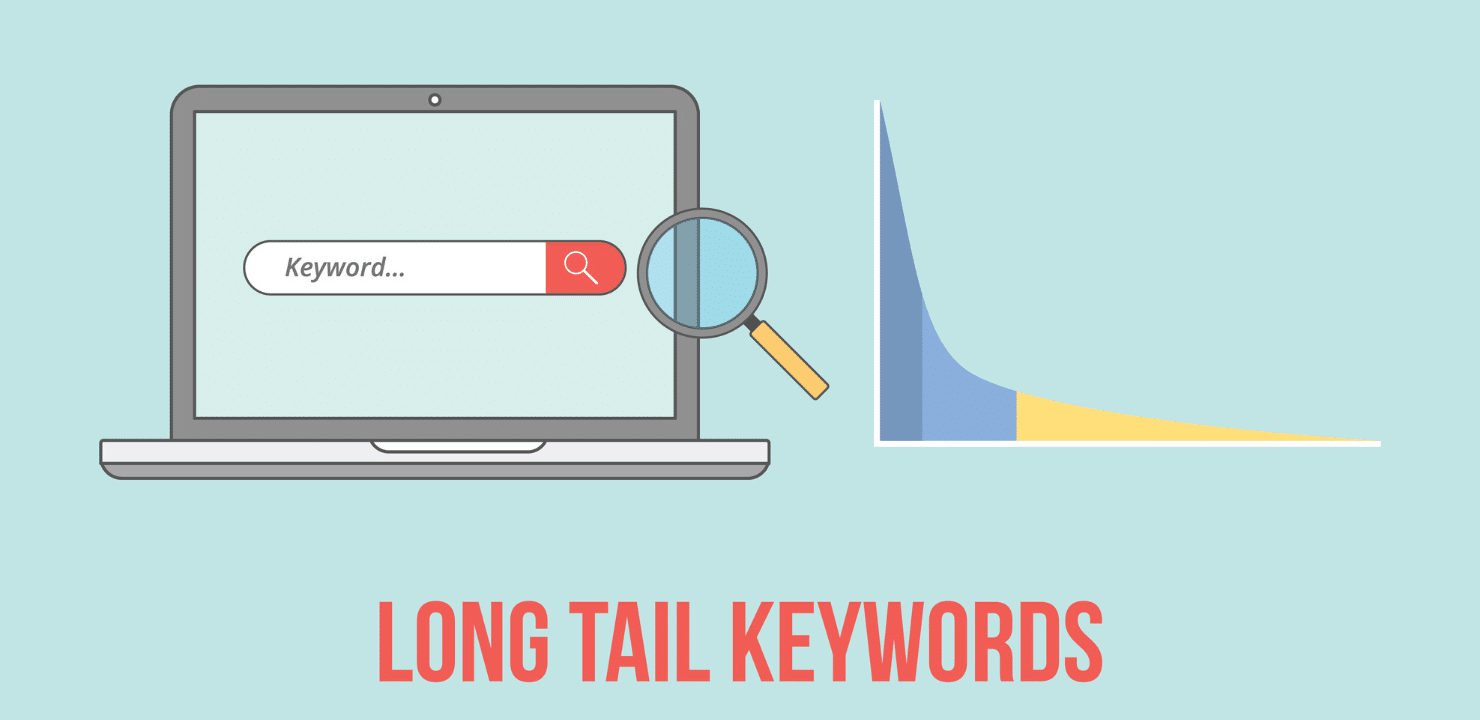1. Higher Conversion Rates
This is one of the greatest benefits of long tail keywords. Long-tail keywords have higher conversion rates because consumers are more likely to use them when they’re close to purchasing goods and services. Because they’re more conversational, they provide a greater opportunity to customize and personalize your content so that it speaks more directly to your target consumer.
2. Have Low Competition
Long tail keywords are search terms with low competition, representing an opportunity for you to create highly relevant content with high chances of ranking. Competitors are focused on targeting generic terms, making it hard for your business to rank for those keywords. Instead, focus on a specific niche and develop a content strategy for specific long tail keywords.
3. Accurately Define your Target Audience
Google works in your favor by customizing each user’s search results according to their location, interests, age, and other relevant variables. It’s also likely that long-tail keywords will help elevate your ranking in search engines due to the relatively low amount of competition. Digital marketing experts can help you get a handle on long-tail keywords and other SEO/PPC strategies designed to put your business front and center and keep it there.
4. Boost your website’s organic search visibility
One of the most important benefits of a long tail keyword strategy is that they help your website appear in organic search queries. When you use specific long tail keywords, you’re telling Google that your website or blog is related to a particular topic. With this type of search query, Google will be more likely to display your website in search results because it is relevant to what people are looking for. Long tail keywords also help you uncover which topics and keywords your target audience uses most frequently. Learning what topics your audience searches for regularly enables you to improve your marketing strategy so that you can write content about those topics more often and attract more customers with a targeted SEO strategy.
5. Increase your website’s organic traffic
By using this type of keyword search, you can make it easier for people to find what they need on your website and build your brand recognition in the process. With a long tail keyword search, users will be able to find content more quickly than if you only use one word in your title tag or meta description. This is why long tail keywords are ideal for helping businesses generate new organic traffic from Google and other search engines, as well as helping them attract an increased number of customers. Additionally, these types of searches help users identify topics and keywords that their target audience is using most frequently so you can better target your marketing efforts to the right people or products (if you’re a digital business).
6. Generate targeted advertising opportunities
Long-tailed keywords are successful in generating targeted advertising opportunities. Traditionally, you would use broad match keywords to generate a variety of advertising opportunities. While your website may have appeared in many searches, you may have had trouble identifying which advertisements drove the most clicks and conversions. Using long-tailed keywords can help solve this issue as well as improve your online marketing strategy by focusing on specific topics and keywords. If you’re just starting out with digital marketing, long-tailed keywords will help you understand which content is more relevant to your target audience. If you’ve already started with digital marketing, then using long-tailed keywords will allow you to continue focusing on topics that bring in the best conversion rates while also attracting more traffic.
7. Identifying and Designing New Products and Services
Many companies use long tail keywords to identify what their target audience is searching for and then design new products and services accordingly. For example, if you are looking for a new product that your target audience is interested in, you could use long tail keywords to find out what those interested people are searching for. Then you could create a new product and promote it using these keywords through an SEO strategy or PPC. This strategy is effective because it helps companies reach more potential customers with the correct information at the right time. With this strategy, companies can use long tail keywords to build buzz about upcoming products and get feedback from customers on how to improve them.
8. Target Voice Search Results
Long tail keywords are an excellent way to target users looking for answers through voice search. Optimizing your Google Ads for voice search by including long tail keywords will help you increase conversions as users search for specific answers to their questions when using voice search.
9. Optimize your Blog
You can optimize your blog forum with fresh content targeting long-tail keywords. In this way, you’ll generate valuable search traffic for specific questions asked by users. Make sure to address their pain points by offering your business as a solution to their needs.
How do you target long-tail keywords?
Now that you know the benefits of long tail keywords, it is time to start with them. Below are some strategies to find relevant long tail keywords for your business.
-
Find related searches in Google
Try typing general keyword phrases into Google and look at the related searches section or the suggestions depicted on the search bar. Most likely, you will find questions users are asking. Make a list of all the potential long tail keywords you can create content for and evaluate how relevant they are to your business.


